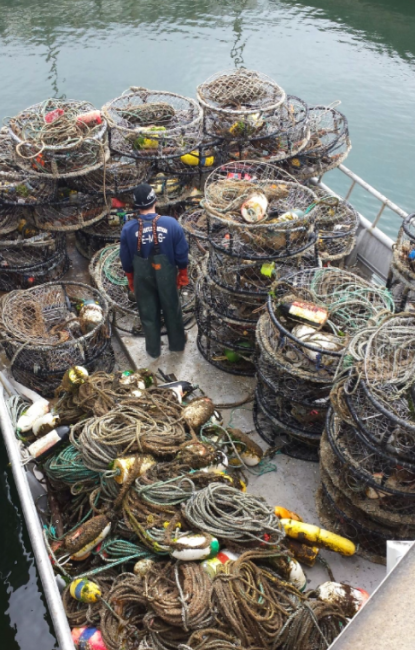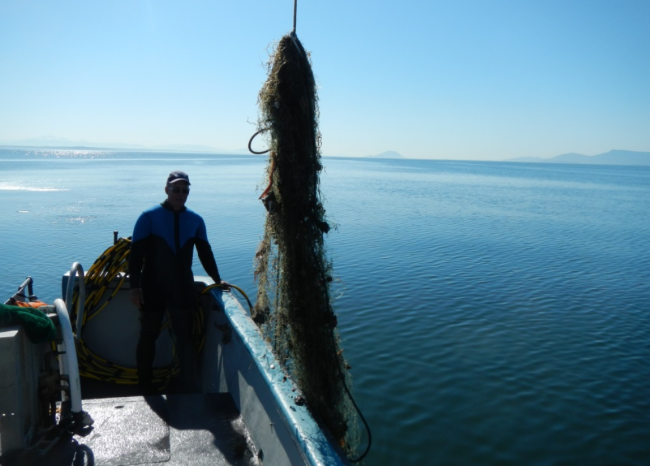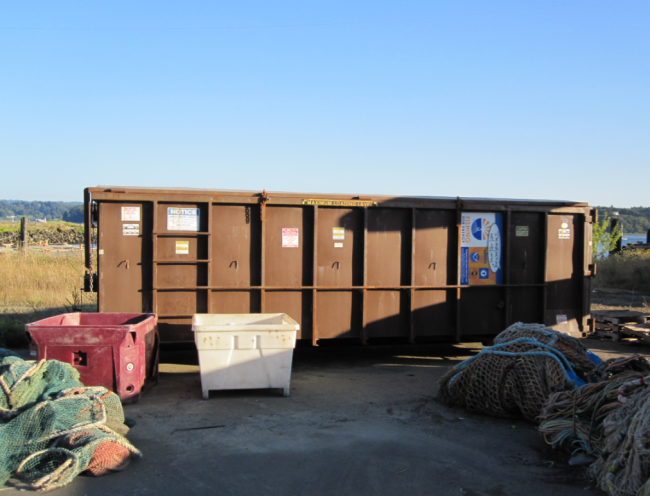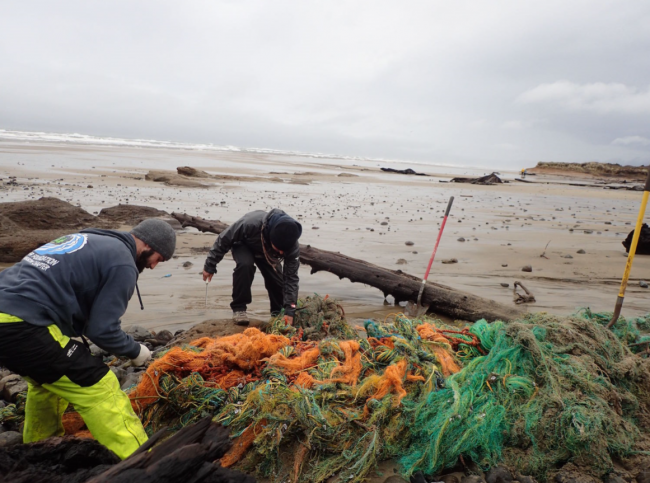By: Nir Barnea, Pacific Northwest Regional Coordinator for the NOAA Marine Debris Program
To most residents and visitors in the Pacific Northwest, marine debris is what they see on the beautiful beaches of Oregon and Washington: items such as plastic consumer debris, commercial packaging, and even balloons. Luckily, agencies and NGOs including CoastSavers, Grassroots Garbage Gang, Oregon SOLVE, and the Oregon Marine Debris Team have collaborated together and with the NOAA Marine Debris Program (MDP) for years to prevent and remove this debris, much of it arriving from around the Pacific to the sparsely-populated Pacific Northwest coast. Another form of marine debris, derelict fishing gear, is less visible, but still harmful to the environment, commerce, and navigation. Derelict crab pots, shrimp traps, and lost nets and lines can entangle marine wildlife, harm the sea floor upon which they rest, pose a risk to navigation, and even threaten human safety.
Since its inception, the NOAA MDP has partnered with Pacific Northwest federal and state agencies, tribes, the fishing industry, non-governmental organizations, and academia to research, prevent, and remove derelict fishing gear. For instance, along the outer Washington coast, the MDP is working with The Nature Conservancy, whom has partnered with the Quinault Indian Nation, the Quileute Tribe, and Natural Resource Consultants to remove lost crab pots. If removal of the pot is impossible because it is buried too deep in the sand, the float line is cut and thus the entanglement hazard is eliminated. To focus on derelict nets in the Puget Sound, the MDP worked on a multi-year removal project with the Northwest Straits Foundation, which removed over 5,000 derelict fishing nets, most of which were lost in the 1960’s and 70’s. Currently, the Northwest Straits Foundation is working with the MDP and fishermen to improve reporting of lost nets and remove them quickly. This project also developed short instructional videos for recreational fishermen, aimed at preventing crab pot loss in the first place.
Preventing derelict gear is the ultimate solution, and so the Fishing for Energy partnership has provided fishermen with reception bins to dispose of derelict fishing gear at no cost. In Oregon, Newport and Garibaldi have had bins for years, and recently a bin was placed in Westport, Washington. If not disposed of properly, derelict fishing nets can travel long distances and end up on remote and hard-to-access beaches. This is why providing a place to dispose of nets properly is so beneficial and if a net is lost, its prompt removal is very important. In Oregon, Oregon Surfrider and other organizations collaborate to respond to this type of removal need quickly.
Marine debris in all its forms is a big and growing global problem, and addressing it effectively requires good communication and collaboration on both a global and regional scale. In the Pacific Northwest, the recently-finalized Oregon Marine Debris Action Plan will contribute to reducing marine debris in Oregon, with a similar plan in the works for Washington. These documents will serve as guides to help Pacific Northwest marine debris stakeholders address marine debris effectively and collaboratively.




